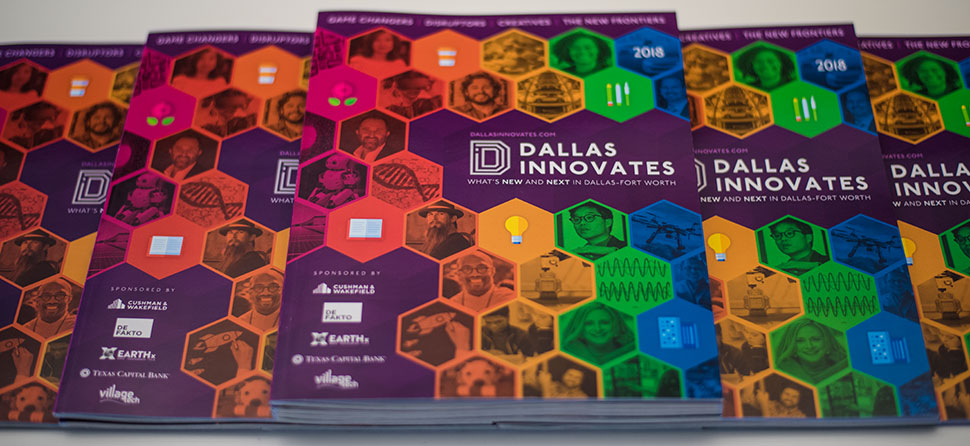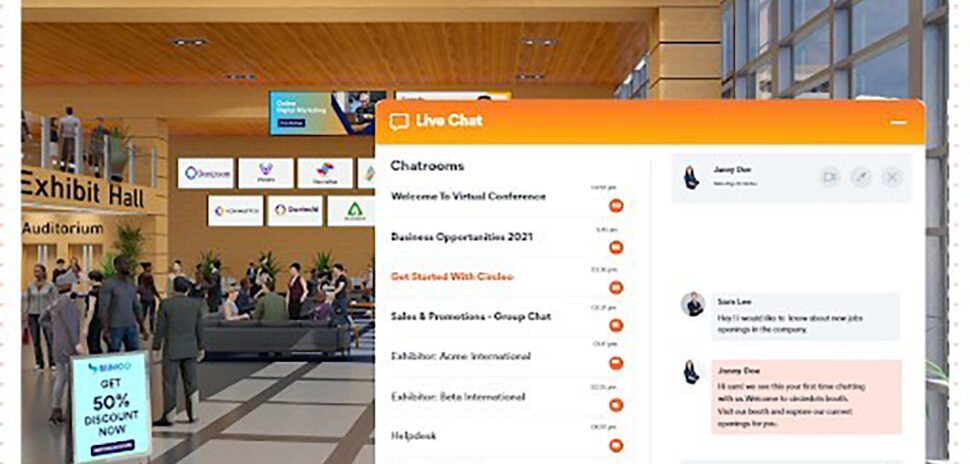![]() Dallas-Fort Worth’s history is rife with innovation and entrepreneurship. Consider the likes of Mark Cuban, a self-made billionaire who got his start founding internet radio company broadcast.com. Or Ross Perot Jr., who has continued the Perot family’s legacy through real estate development and technology investments. And Bottle Rocket’s Calvin Carter, who started his first business out of his dorm room at Southern Methodist University. There’s no shortage of success stories in the region.
Dallas-Fort Worth’s history is rife with innovation and entrepreneurship. Consider the likes of Mark Cuban, a self-made billionaire who got his start founding internet radio company broadcast.com. Or Ross Perot Jr., who has continued the Perot family’s legacy through real estate development and technology investments. And Bottle Rocket’s Calvin Carter, who started his first business out of his dorm room at Southern Methodist University. There’s no shortage of success stories in the region.
“There’s always been a history of entrepreneurism in this region,” says Joe Beard, partner of venture capital firm Perot Jain. “It’s always been here … in different verticals.” Texas Instruments, which invented the silicon transistor in 1954, has been churning out research, technology developments, and offshoot companies for decades.
“There’s always been a history of entrepreneurism in this region. It’s always been here … in different verticals.”
Joe Beard
In the ’90s, North Texas was home to the Telecom Corridor, a hotbed for innovation in telecommunications technologies. The telecom and dot-com busts have since changed the dynamics of the region, spurring a new generation of innovators. “In a word, I would say we’ve become collaborative,” says Jennifer Conley, vice president at Dallas startup Vinli, and co-founder of the Dallas Entrepreneur Center. “It’s just not about what you want to get out of it anymore. It’s about what we all want to get out of it.”
Entrepreneurship has proven to be a viable career path, and young innovators are breathing new energy into veteran entrepreneurs, Beard says. Local institutions like Southern Methodist University and the University of Texas at Dallas are teaching students how to create successful companies. And startups aren’t alone in understanding the value of innovation. The attitude across sectors is innovate or prepare to be disrupted, says Doug Reeder, vice president of innovation at NTT DATA Services.
DFW corporations have spent recent years erecting innovation centers to improve speed, quality, and efficiency of their businesses. And they’re putting their money where their mouth is, he adds. “I’m seeing a desire to co-investigate, co-innovate, and co-invest in order to get more innovation,” he says. “We’re seeing the emergence of business-partner ecosystems.
“I’m seeing a desire to co-investigate, co-innovate, and co-invest in order to get more innovation.”
INNOVATION HUBS SPREAD ACROSS REGION
That collaboration, which has been gaining momentum as innovation hubs spread across the region, is making its way into the investment community, too, says Beard. “The dialogue among early-stage investors is improving,” he says. “In 2018, you’re going to see more than one local VC firm in one deal.”
While DFW is still challenged by its sprawling geography, the community as a whole has improved opportunities for the collision of ideas, Conley says, with groups, organizations, and companies hosting an array of networking events, seminars, and conferences. “It’s almost like the Silicon Valley vibe is happening in the Silicon Prairie,” says Reeder, referring to DFW. And there’s still so much room to grow engagement in the innovative ecosystem, says Conley.
“We’ve only scratched the surface.”
This story first appeared in Dallas Innovates 2018, an annual magazine that showcases Dallas-Fort Worth as a hub of innovation. Read more about the region’s game changers, disruptors, creatives, and our new frontiers in the digital edition.
DALLAS INNOVATES 2018: READ THE DIGITAL EDITION
![]()
Get on the list.
Sign up to keep your eye on what’s new and next in Dallas-Fort Worth, every day.




























